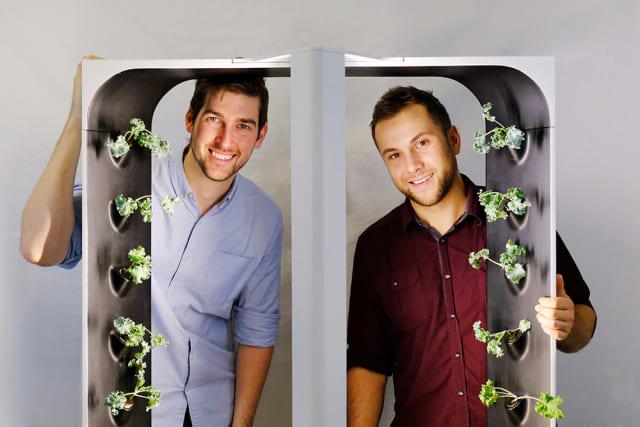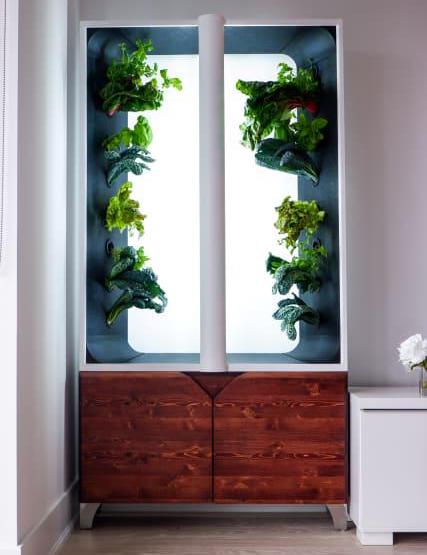
It may be time to start growing our own produce.
In a world where climate change and overpopulation are already a rising concern, the SARS-CoV-2 pandemic has made us increasingly conscious of food’s supply chain insecurities.
COVID-19 has caused hiccups within production lines, and we have an uncomfortable dependence on frontline workers for our food needs. We lack localized distributed food systems, and our continued reliance on central agricultural zones has resulted in farmers having to recycle ripe crops due to the fragility of our supply networks.
Just Vertical, an indoor vertical hydroponic company based in Toronto, has witnessed a triple-digit increase in demand of its AEVA units during the pandemic.
“Our specific area of indoor agriculture is projected to grow to $6 billion in North America by 2022,” says Kevin Jakiela, co-founder, and president of Just Vertical, in an interview with engineering.com. “COVID has really pushed the envelope of people considering where their food comes from, and how quickly they can access their food. We’ve accomplished numerous commercial projects, such as setting up basement farms. Indoor farms are essentially a way for urban dwellers to grow different types of produce at the same time all year round.”
Jakiela has personal experience with communities affected by food insecurity, having worked extensively in remote Canadian Arctic regions such as Nunavut, Northwest Territories, and Northern Quebec.
“You can’t grow food in –40°C, with 20 to 22 hours of darkness a day,” asserts Jakiela. “I like to consider myself a banana-a-morning guy. When I got to these communities, bananas didn’t exist—and when they did arrive, they were mushy and brown. Food prices were insurmountably high. A frozen pizza would go for $35–40. A two-liter jug of orange juice would cost around $40. There were major nutrition issues in these communities, with rampant obesity, diabetes, and heart disease because subsidies would be applied to unhealthy foods. A bag of chips would cost the same there as it did in Toronto, which is sad when you have to feed a family and there’s only so much money to go around.”
In 2017, Jakiela leveraged his plant biology background and incorporated Just Vertical with co-founder Conner Tidd, who he had met at the University of Toronto when completing a master’s degree in sustainability management. Tidd had previously worked within the sustainability division of a multinational agriculture company and possessed a breadth of experience in tackling innovation challenges across the farming industry.
With Just Vertical, the two innovators are aiming to transform city dwellers into urban farmers—growing fresh, pesticide-free produce while simultaneously decreasing the carbon footprint associated with the transportation of food around the globe.
The AEVA

Just Vertical’s high-yield indoor growing system, the AEVA, is a hybrid of both hydroponic and aeroponic systems. Hydroponics is the process of growing plants without soil, while aeroponics refers to using an air or mist environment. The $1,199 unit—which measures at a height of 5’10” (1.77 m), and a width of three feet (0.915 m)—can house 16 plants at a time. It can grow over 200 varieties of plants —from leafy greens and herbs to tomatoes and strawberries. Up to 10 lbs of produce can be generated per month, translating to approximately 35 servings of food.
Apart from the luxury of being delivered fully assembled, the AEVA requires no green thumb either. After running warm water over the seeds to facilitate germination, each seed is placed inside a peat moss plug, and the pod is planted into the tower. Peat moss foregoes the need for soil, so indoor gardening can be enjoyed without the mess.
Read more at ENGINEERING.com
